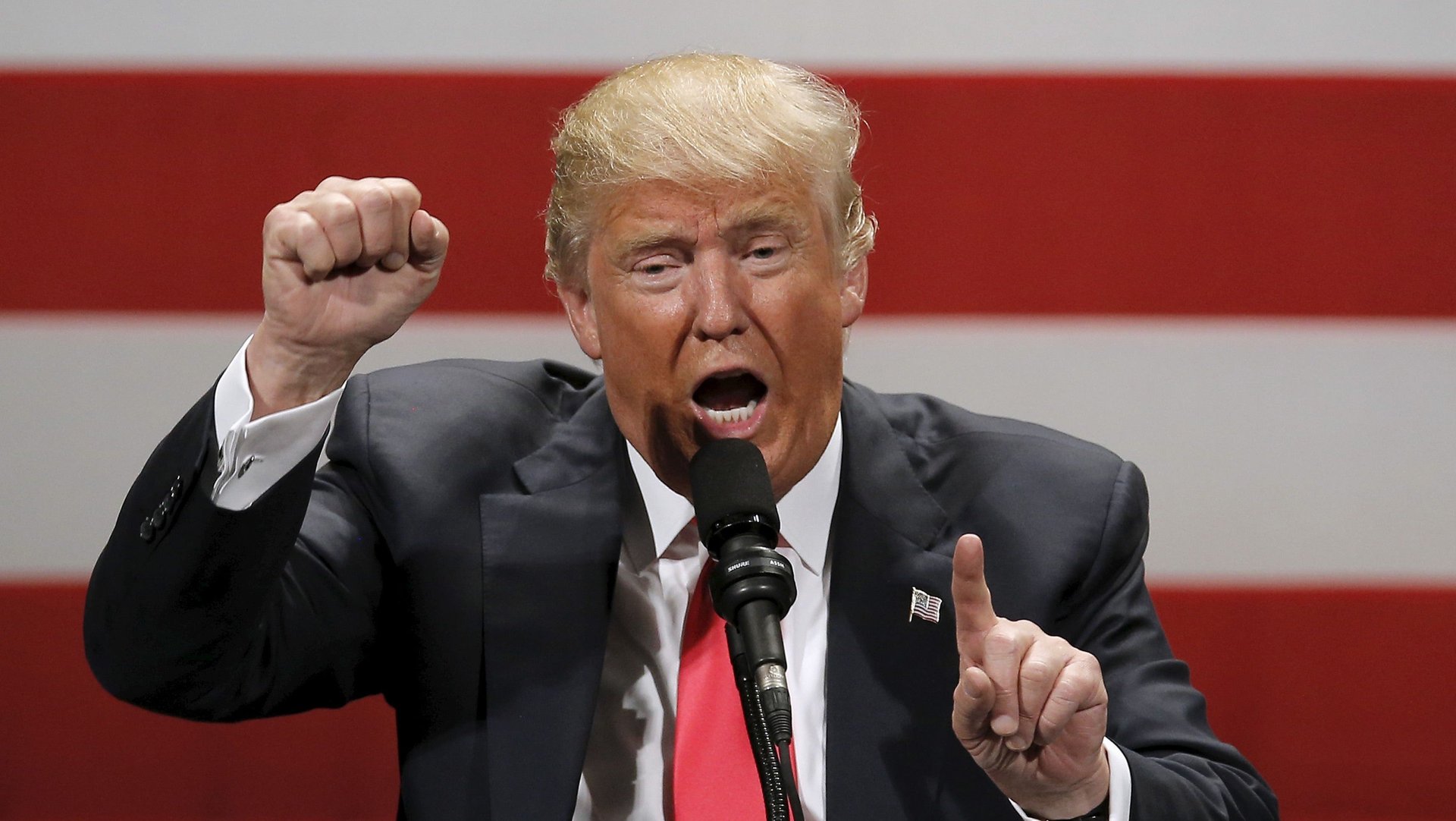Trump reveals his plan to get Mexico to pay for his border wall—and it is bonkers
Donald Trump burst on the scene as a presidential candidate last summer with his call to stop illegal immigration by building a border wall with Mexico, and to have Mexico pay for it. In a memo to the Washington Post, the Republican frontrunner finally disclosed how he would force the US neighbor to pony up the money.


Donald Trump burst on the scene as a presidential candidate last summer with his call to stop illegal immigration by building a border wall with Mexico, and to have Mexico pay for it. In a memo to the Washington Post, the Republican frontrunner finally disclosed how he would force the US neighbor to pony up the money.
His plan? Extorting Mexico by cutting the massive flow of remittances that come into the country from the US, canceling visas, and increasing trade tariffs.
“Immigration is a privilege, not a right,” Trump writes. “Mexico is totally dependent on the United States as a release valve for its own poverty—our approvals of hundreds of thousands of visas every year is one of our greatest leverage points.”
There are many problems with Trump’s plan. Among other things, it underestimates the costs of building the wall, rests on shaky legal ground, and, above all, could severely hurt both the US and Mexican economies. According to various estimates, up to 14 million American jobs depend on trade with the country.
Trump writes that he would alter a rule under the Patriot Act, designed to counter terrorism, to cut off some of the remittances Mexico gets every year from Mexicans living in the United States.
“Mexico will immediately protest. They receive approximately $24 billion a year in remittances from Mexican nationals working in the United States. The majority of that amount comes from illegal aliens. It serves as de facto welfare for poor families in Mexico,” Trump writes. In 2014, remittances to Mexico surpassed foreign direct investment, while in 2015, they surpassed income from oil, coming to a $24.8 billion total,with $23.7 billion coming from the US.
If Mexico made a one-time payment of $5-10 billion, Trump says his administration would allow it to continue receiving remittances.
Such a change to the Patriot Act—specifically altering section 326, which requires finance companies to ask for ID from their customers, so that it includes wire transfer companies—would surely spark massive lawsuits from civil liberties groups and companies like Western Union.
Moreover, a wall may not cost the $8 billion that Trump estimates, but closer to $15 billion to $25 billion, according to MPI, as Quartz pointed out when Trump first outlined his plan.
And, as the Post points out that it is very difficult to track how much of the remittances come from undocumented immigrants. Draining Mexico of that income would drastically hurt the country’s poor, and ironically might trigger more undocumented immigration into the United States.
Based on past remarks, Mexico’s leaders are unlikely to welcome Trump’s proposal.